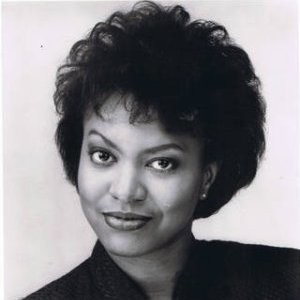
Also credited as Marcia L. Leslie and as Leslie Johnson. Excerpted from a profile in the SF Chronicle, Feb 2, 2012
Playwright Fights Black Female Stereotypes
In a court presided over by a black female judge, black female defense and prosecuting attorneys argue Victoria’s case against Mam– my Louise and Safreeta Mae, the women who represent the stereotypes. Victoria, a “buppie” — black urban professional — who defines her accomplishments in terms of what she wears and what she drives, wants to put as much distance as possible between herself and the degrading specters of slavery.
Leslie, a CBS television videotape editor and former sitcom writer, said that even though the play is about a modern black woman in conflict with historical images, the effect is one of reconciliation and healing.
“This play is about how we see ourselves,” she said by phone from her home in Los Angeles. “I wrote the play because I believe that once we acknowledge the ancestors, a lot of the problems will dissipate. I think the ancestors are angry that we don’t want to speak their names, speak the history. We need to acknowledge the past, not with shame but pride.”
But when Victoria sees them as real people, she begins to come to terms with the history of sacrifice and accommodation that make her own existence possible.
“When Mammy Louise and Safreeta Mae tell their stories, they reclaim their humanity,” Leslie said. “We see they are truly reflective of women who have lived.”
The ways we see each other keep us isolated from each other,” she said. “At times, we as black women won’t allow each other to be who we are. You have to speak this way and walk this way and dress this way. It’s basically the same energy as racism — saying there is only one right way to be. But maybe that’s something to explore further in another play.”
She also drew on her own experiences as one of a handful of black women working in Hollywood. Friends who knew her as a videotape editor were impressed with her writing when they came to see an early production of “The Trial.”
HER START IN SITCOMS
“They thought it was funny, and someone said, ‘You should be writing comedy,’ ” she said. “That’s how I got my start in sitcoms.
Unfortunately, once she entered the world of sitcom writing, she found little opportunity to express the kinds of voices and viewpoints her friends admired in her play.
“Most writers are white, and they tend to write out of their own experiences,” she said. “You find that your input is censored, and that’s hard. You have to defend your work, and you can come to be seen as a problem because you have a different viewpoint.”
Leslie, who wrote for “The Cosby Show” as well as for Nell Carter and Robert Townsend, said she was usually the only black woman in the room — a situation she shares with her character Victoria.
“I grew up middle class in Cincinnati, went to a wealthy white high school and attended Northwestern University,” said Leslie, who is in her early 40s. “I’ve been in situations where I was the only black many times, and I wasn’t uncomfortable with that.”
But when she became a television writer, she found herself trapped by the power of the stereotypes she’d hoped to change.
“Television is all about stereotypes — especially sitcoms,” she said. “And that used to anger me. The character I wanted to create was someone like me: educated, middle- class, someone who likes to ski. But they told me that character doesn’t exist.”
MORE COMPLEX CHARACTERS
Leslie said she is heartened by the more complex African American characters turning up on recent television dramas. She was a big fan of Andre Braugher‘s Frank Pembleton on NBC’s “Homicide: Life on the Street,” and she’s become smitten with Lifetime’s new show “Any Day Now,” about a black lawyer (Lorraine Toussaint) who returns to her Southern hometown and resumes a childhood friendship with a white housewife.
“I just love that show,” she said. “For me the character is the closest representation to a real black woman I’ve seen. She’s intelligent but she’s not perfect. And I like the relationship with her white friend. We need to do more in that direction.”
Leslie said she wasn’t sure that big Hollywood films like “Amistad” and “Beloved” are the best vehicles for discussion of slavery.
“I’m glad ‘Beloved’ got made, but speaking as a bottom-liner, I’m not sure it worked,” she said. “People go to the movies to be entertained.”
She suggested that the stage might be a more appropriate setting for stories about slavery.
“If I have any hope for the play, it’s that it can help all of us acknowledge the past,” she said. “I’m making the unreasonable request that we as a nation acknowledge the history so that we can move on.”
| Credit Type | Production | Season |
|---|---|---|
| Playwright | The Trial of One Short Sighted Black Woman vs Mammy Louise and Safreeta Mae | 1999-00 Season |

